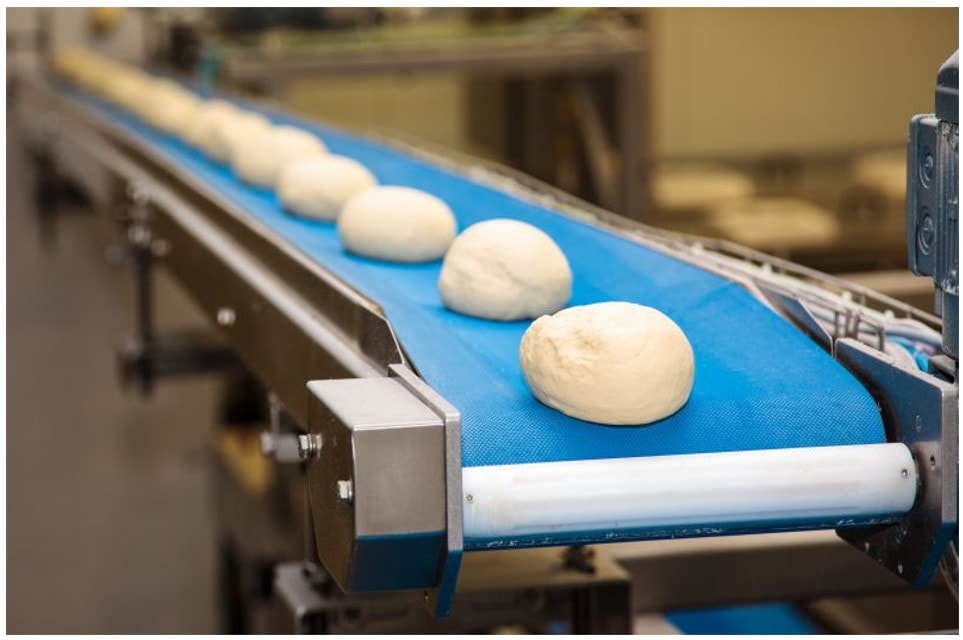Introduction
In today's busy as well as ever-changing globe, the food industry is frequently advancing to satisfy the demands of customers. One location that has actually seen significant growth and also development is contract food manufacturing. This procedure includes partnering with a specialized business to produce and package foodstuff on behalf of an additional brand name. In Australia, contract food manufacturing has come to be significantly prominent due to its various advantages as well as advantages. In this article, we will certainly check out the several advantages of contract food manufacturing in Australia and just how it can aid businesses thrive in the competitive food industry.
Contract Food Manufacturing: What Is It?
Before diving into the advantages, allow's initial specify what contract food manufacturing involves. Contract food manufacturing, also called co-packing or toll manufacturing, is a calculated collaboration in between a brand name or business as well as a specialized contract producer. The agreement manufacturer is responsible for generating, product packaging, as well as in some cases even distributing the food products in behalf of the brand. This plan enables Sourcing food ingredients brand names to concentrate on their core expertises such as advertising and marketing, sales, as well as product growth while leaving the production process to experts.
The Advantages of Agreement Food Manufacturing
1. Cost-Effectiveness
Contract food production uses considerable price savings for brands contrasted to building their own production facilities. Creating a food factory needs significant investments in infrastructure, tools, upkeep, and also skilled labor. By partnering with an agreement producer, brands can avoid these upfront prices and rather pay for manufacturing services on an as-needed basis.
2. Scalability
One of the vital advantages of contract food manufacturing is its scalability. As a brand expands or experiences fluctuations in demand, it can easily adjust manufacturing volumes without having to buy additional resources or tools. This adaptability permits brands to react quickly to market changes and customer demands.
3. Experience as well as Innovation
Contract suppliers focus on food manufacturing as well as have extensive understanding as well as know-how in their area. They stay on top of the latest market fads, innovations, as well as regulations, guaranteeing that the products they manufacture are of the finest quality as well as fulfill all needed standards. Additionally, contract manufacturers commonly have actually devoted r & d teams that can help brands introduce and also establish brand-new food products.
4. Quality Control
Maintaining consistent item top quality is important in the food sector. Contract food producers have robust quality assurance procedures in position to make sure that every batch of items satisfies stringent criteria and requirements. They comply with Excellent Production Practices (GMP) as well as follow food safety regulations, giving brands with comfort recognizing that their products are risk-free for consumption.
5. Speed to Market
Launching a new food product can be an extensive process, especially if a brand needs to construct its own manufacturing center from the ground up. Contract food manufacturing allows brand names to accelerate their time to market dramatically. By leveraging the existing infrastructure as well as knowledge of a contract manufacturer, brand names can bring their products to market quicker, getting an affordable advantage in the industry.
6. Personalization and also Flexibility
Contract food manufacturers supply a large range of modification options for brands. Whether it's adjusting component formulations, product packaging styles, or portion sizes, agreement makers can tailor their services to fulfill details brand requirements. This level of customization enables brands to produce one-of-a-kind products that reverberate with their target audience.

7. Lowered Risk
Entering the food sector can be risky, especially for start-ups or small companies with minimal sources. Contract food manufacturing aids reduce this threat by supplying access to well-known manufacturing facilities as well as supply chains. Brands can utilize the experience as well as experience of contract makers while minimizing monetary risks connected with building their own manufacturing capabilities.

FAQs about Contract Food Manufacturing in Australia
What types of foodstuff can be manufactured via contract food manufacturing in Australia? Contract food manufacturing in Australia covers a wide range of products including beverages, treats, icy foods, sauces, spices, milk items, and also much more. The flexibility of contract food manufacturing permits brands to generate numerous food items tailored to their specific needs.
How can contract food manufacturing in Australia aid local business or startups? Contract food manufacturing supplies small companies as well as startups with a cost-effective way to go into the food market without the demand for substantial investments in framework as well as devices. It permits them to focus on building their brand while leaving the manufacturing process to experts.
Is contract food manufacturing only ideal for large production? No, contract food manufacturing appropriates for both large-scale as well as small-scale manufacturing. Contract suppliers have the adaptability to accommodate various manufacturing volumes based upon brand requirements.

Can agreement food makers aid with product packaging layout as well as labeling requirements? Yes, agreement food manufacturers typically use services pertaining to product packaging style and also labeling. They can offer assistance on governing requirements and also aid brand names create appealing and compliant product packaging for their products.
Are contract food suppliers in charge of item distribution as well? While some agreement suppliers provide circulation services, it is not always consisted of in the collaboration arrangement. Brand names can select to handle distribution themselves or deal with third-party logistics companies to ensure their products get to the market efficiently.
What are the crucial aspects to consider when selecting a contract food producer in Australia? When selecting a contract food supplier in Australia, brand names need to consider elements such as experience, experience, qualifications (such as HACCP or GMP), production capabilities, track record, and credibility in the industry. It is likewise vital to evaluate the manufacturer's ability to fulfill specific item needs as well as timelines.
Conclusion
Contract food production supplies countless advantages for brands in Australia aiming to get in or expand their presence in the competitive food sector. From expense financial savings as well as scalability to proficiency and also development, partnering with a contract maker can help brand names simplify their operations, keep high item high quality, and also accelerate their time to market. By leveraging the abilities of contract food producers, brand names can focus on what they do best-- creating as well as marketing exceptional food that please customer demands. So, if you're thinking about entering the food industry or wanting to enhance your existing procedures, contract food manufacturing in Australia might be the tactical service you've been searching for.